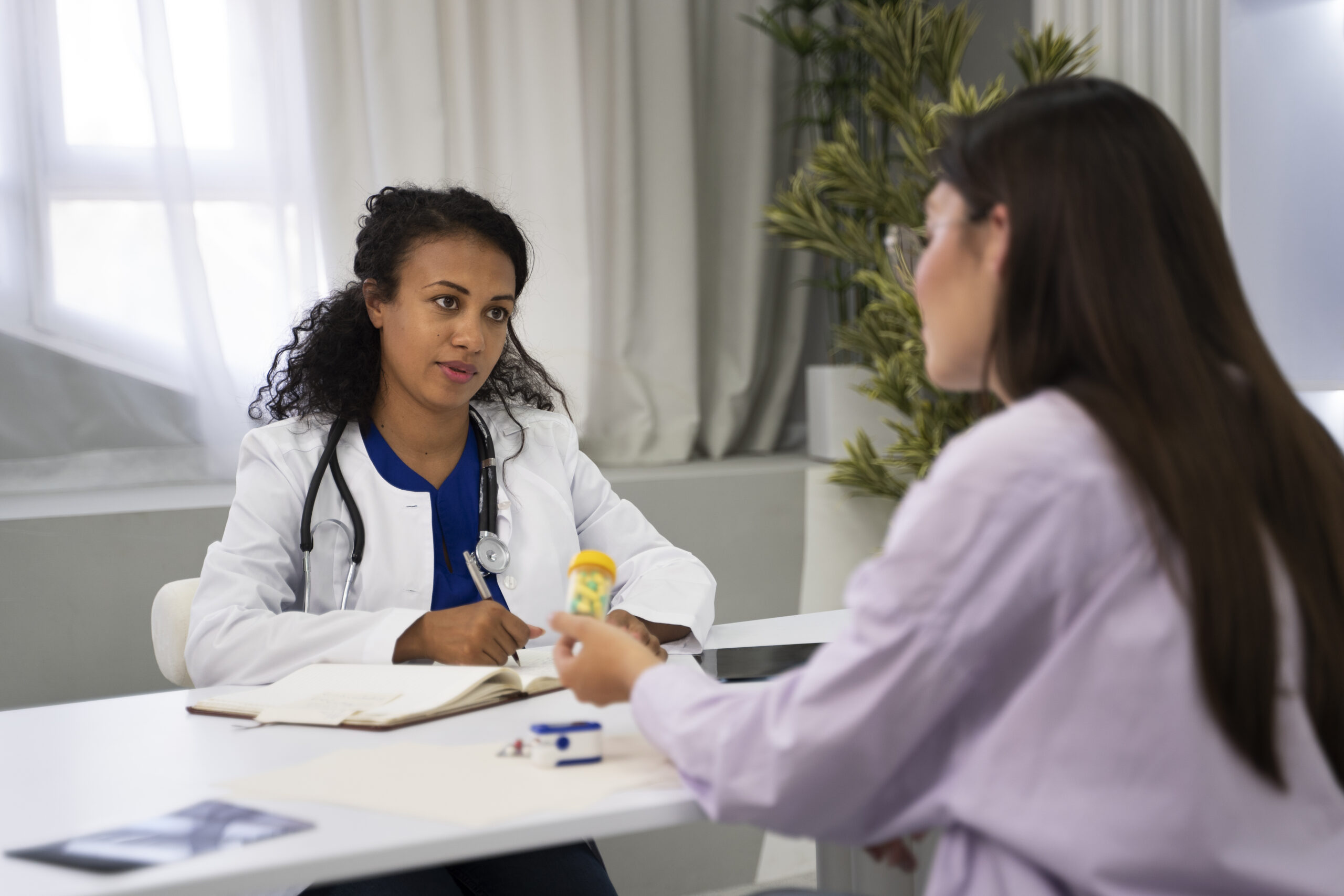


Our Well-Woman Care services are designed to support your health and well-being at every age. These routine check-ups help detect issues early, provide personalized health guidance, and empower women to take charge of their health.
Well-woman care is an annual preventive health check-up that focuses on:
Your visit may include the following, based on your age and health history


We ensure confidentiality, respect, and a judgment-free space. Our goal is to make every woman feel informed, supported, and empowered to live a healthy life.
Well-woman care refers to regular health check-ups and preventive services that focus on a woman’s overall health and well-being. It involves routine screenings, health assessments, and counseling on topics like reproductive health, mental health, and lifestyle habits. In India, well-woman care is crucial as it helps in :
● Early detection of conditions such as breast cancer, cervical cancer, diabetes, and heart disease.
● Maintaining reproductive health and addressing issues like menstrual irregularities or PCOS.
● Monitoring mental health as stress, anxiety, and depression can often go undiagnosed.
● Preventing lifestyle-related diseases by advising on diet, exercise, and other healthy habits.
Regular visits to a gynecologist or primary healthcare provider can help detect potential health problems before they become serious.
In India, it’s recommended to start getting regular well-woman check-ups by the age of 21 or when you become sexually active. Routine check-ups should include :
● Pap smear tests to screen for cervical cancer (typically starting at age 21 or after the first sexual activity).
● Breast exams to check for lumps or changes (usually starting at age 20).
● Regular screening for blood pressure, cholesterol levels, and blood sugar starting from the age of 30, especially if you have a family history of heart disease or diabetes.
As you age, the frequency of screenings and tests may increase, and your doctor will suggest what’s right for you.
Some key screenings and health checks to include in your well-woman care include :
● Pap Smear : To screen for cervical cancer, recommended every 3 years for sexually active women over 21.
● Mammogram : To screen for breast cancer, typically recommended for women over 40 years. If you have a family history of breast cancer, your doctor may recommend earlier screening.
● Blood Pressure Check : Regular monitoring for hypertension, starting as early as 30 years.
● Blood Sugar Test : Especially for women at risk of diabetes or if you have a family history.
● Cholesterol Test : To assess the risk of heart disease, recommended for women over 30.
● Thyroid Function Tests : Thyroid issues are common in women, so it’s important to get regular tests if you have symptoms like fatigue or weight changes.
● Bone Health : Especially for postmenopausal women, regular screening for osteoporosis may be advised.
Your healthcare provider will guide you on the frequency and types of tests based on your personal and family medical history.
Taking care of your reproductive health is a vital part of well-woman care. Some key practices include :
● Menstrual Health : Track your menstrual cycle to identify any irregularities, heavy bleeding, or painful periods. If you experience these symptoms, seek medical advice.
● Contraception : Use family planning methods that suit your needs, whether it’s oral contraceptives, IUDs, or barrier methods like condoms.
● Preventive Vaccinations : The HPV vaccine is essential to prevent cervical cancer. It’s recommended for girls between the ages of 9 and 14 and can also be given up to age 26.
● Pelvic Health : Routine pelvic exams help screen for infections, fibroids, cysts, and other reproductive health issues.
● Mental Health : Mental well-being is closely linked to reproductive health. Address any concerns like stress, anxiety, or depression, which can affect hormonal balance and overall health.
● Fertility Awareness : Discuss with your doctor if you plan to conceive in the future to understand your fertility health.
Regular consultations with a gynecologist and staying informed about reproductive health can prevent complications and ensure a healthier future.
As you age, adopting a healthy lifestyle can greatly improve your quality of life and prevent chronic diseases. Some important changes to consider :
● Exercise Regularly : Engage in physical activity like walking, yoga, or swimming. Aim for at least 30 minutes of exercise most days of the week to maintain a healthy weight, reduce stress, and improve cardiovascular health.
● Healthy Eating : Focus on a balanced diet rich in fruits, vegetables, whole grains, and lean proteins. Limit the intake of fried, spicy, and processed foods, especially in regions where these may be part of traditional diets.
● Stay Hydrated : Drink plenty of water to keep your skin healthy and support your body’s functions.
● Manage Stress : Engage in activities like meditation, deep breathing, and yoga. Chronic stress can affect both physical and mental health.
● Avoid Smoking and Limit Alcohol : Smoking increases the risk of many chronic diseases, and excessive alcohol consumption can contribute to liver damage and other health concerns.
● Sleep Well : Aim for 7–8 hours of quality sleep every night, as poor sleep is linked to heart disease, diabetes, and mental health issues.
Adopting a healthy lifestyle is a continuous journey and can help improve long-term health and well-being.

Premier women’s healthcare facility
Near SDM Engg College, Opp Police Training School, Kalaghatagi Road, Giri Nagar, Dharwad - 580002